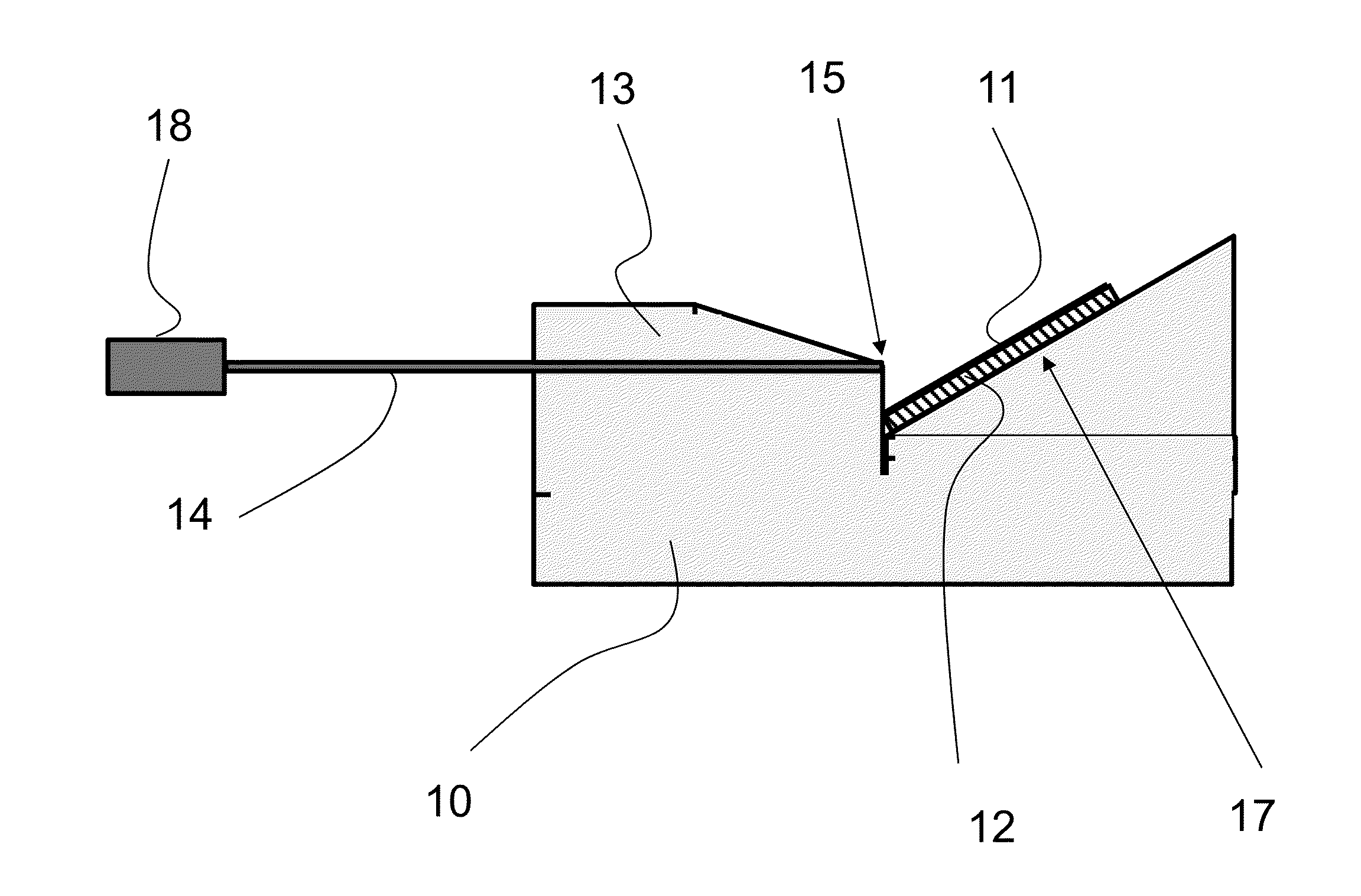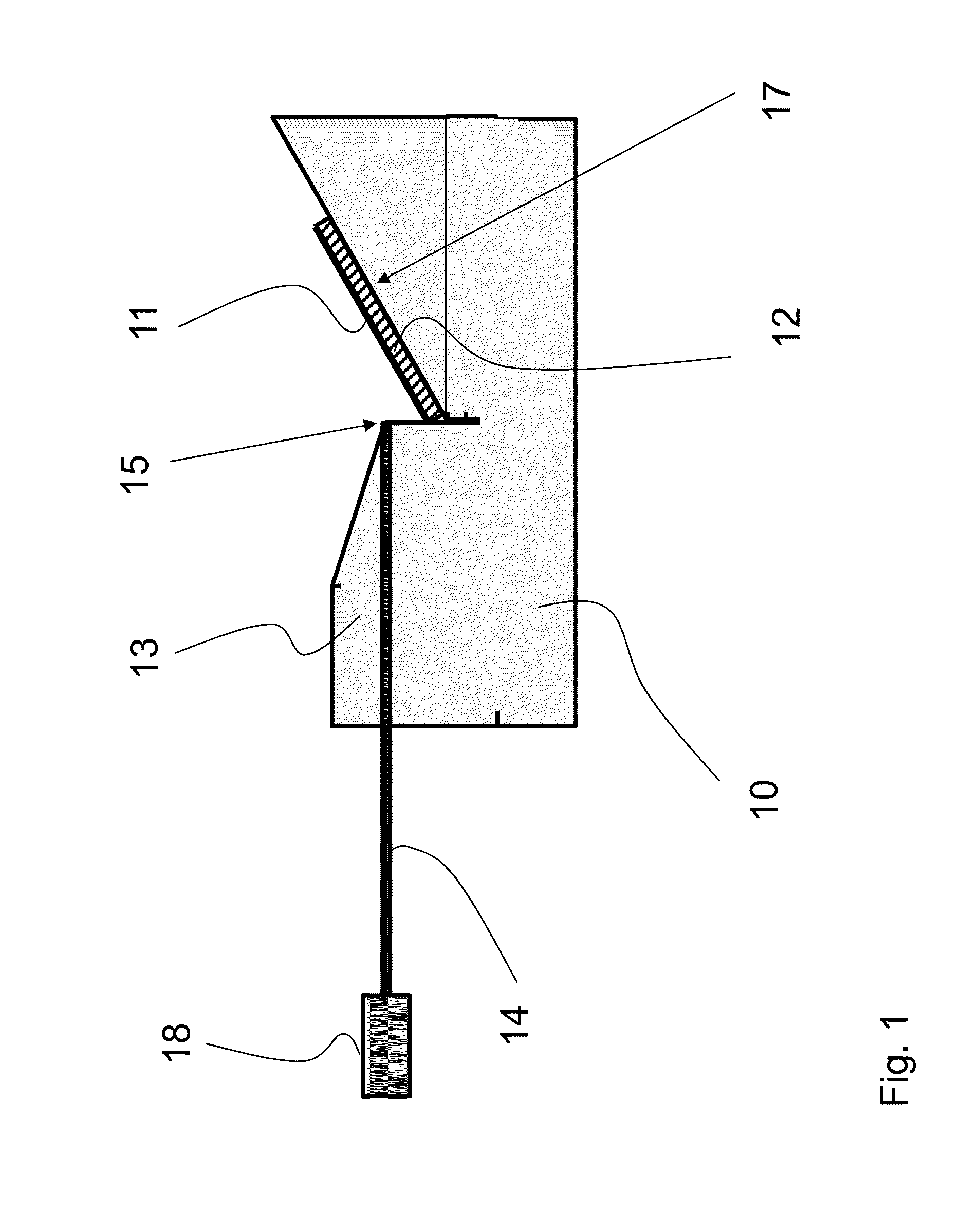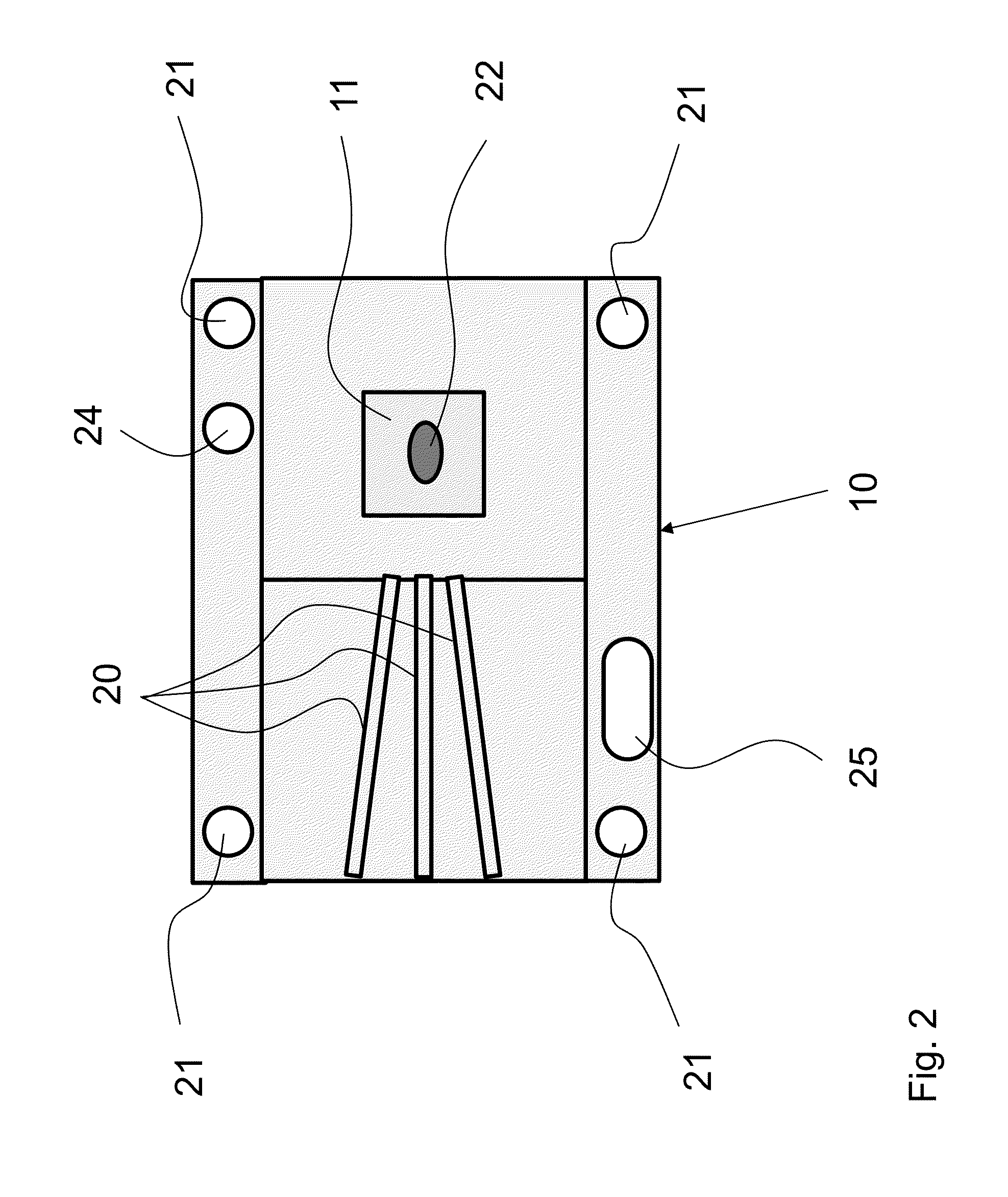Lighting equipment for generating light of high luminance
a technology of lighting equipment and luminance, which is applied in the direction of lighting and heating equipment, instruments, display means, etc., can solve the problems of high thermal stress, limited adjustment of numeral aperture na of excitation light, and difficulty in implementing sufficient cooling and adequate removal of heat from led devices, etc., to achieve greatly simplified heat removal, high efficiency, and high luminance
- Summary
- Abstract
- Description
- Claims
- Application Information
AI Technical Summary
Benefits of technology
Problems solved by technology
Method used
Image
Examples
Embodiment Construction
[0146]In the following detailed description of preferred embodiments, for the sake of clarity the same reference numerals designate substantially similar elements in or on these embodiments.
[0147]FIG. 1 is a schematic cross-sectional side view of lighting equipment according to the invention. The excitation light source comprises an optical light conductor which is configured as a fiber optic light conductor 14 and into which electromagnetic radiation of an excitation light source 18 is injected. Light conductor 14 emits the injected electromagnetic radiation as the excitation light at one end 15 thereof towards a conversion medium 11.
[0148]In the region where the conversion medium 11 is fixed, carrier device 10 is provided with a reflective layer 12. This may be a coating on the relevant contact surface 17, for example. It is also possible that a mirror or metallic mirror is provided on the holder. The conversion medium may be securely and / or releasably attached to the carrier devi...
PUM
 Login to View More
Login to View More Abstract
Description
Claims
Application Information
 Login to View More
Login to View More - R&D
- Intellectual Property
- Life Sciences
- Materials
- Tech Scout
- Unparalleled Data Quality
- Higher Quality Content
- 60% Fewer Hallucinations
Browse by: Latest US Patents, China's latest patents, Technical Efficacy Thesaurus, Application Domain, Technology Topic, Popular Technical Reports.
© 2025 PatSnap. All rights reserved.Legal|Privacy policy|Modern Slavery Act Transparency Statement|Sitemap|About US| Contact US: help@patsnap.com



